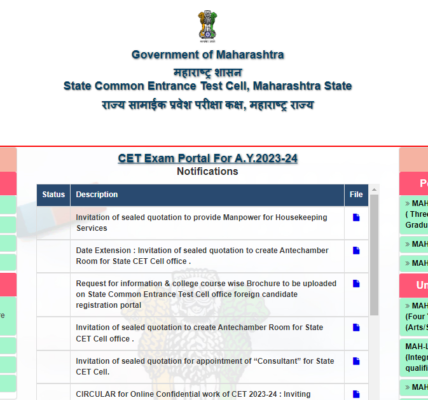In recent years, artificial intelligence (AI) has made significant advances, especially in the field of natural language processing. ChatGPT and academic writing are now closely connected as AI-powered language models change the way students and researchers approach writing. These models, including ChatGPT, have the ability to generate coherent, structured text on a wide range of topics.
However, this technology is also raising questions about its impact on academic integrity, writing quality, and the future of education. In this blog, we will examine the benefits and challenges of using ChatGPT and academic writing, how language models are changing the writing landscape, and what the future holds.
What is ChatGPT?
ChatGPT is a state-of-the-art language model developed by OpenAI. It uses deep learning techniques to understand and generate text based on user prompts. Unlike earlier AI systems, ChatGPT can create human-like text, making it useful for a variety of tasks such as answering questions, drafting essays, and even engaging in conversations.
This technology is highly adaptable, making it a valuable tool for academic writing. Students and researchers can use ChatGPT to brainstorm ideas, draft papers, or clarify complex topics. However, its use in academics also presents ethical concerns that must be carefully considered.
The Benefits of Using ChatGPT in Academic Writing
The integration of ChatGPT and academic writing offers several advantages, especially for students and researchers. Below are some of the key benefits:
1. Improved Efficiency
One of the biggest advantages of using ChatGPT in academic writing is the significant time it saves. Drafting academic papers can be a long and tedious process, requiring multiple revisions. ChatGPT can assist by generating well-structured drafts quickly, helping students and researchers focus on refining ideas rather than struggling with initial content creation.
For example, a student can input a research question, and ChatGPT can provide a draft or outline within minutes. This efficiency allows writers to produce more work in less time, enhancing productivity.
2. Idea Generation and Brainstorming
Sometimes, the hardest part of writing is coming up with ideas. ChatGPT can help generate fresh ideas, offering new perspectives on a topic. By providing suggestions or expanding on prompts, ChatGPT serves as a brainstorming partner for students and researchers.
For instance, if a student is unsure how to begin a literature review, ChatGPT can offer a clear introduction or suggest key themes. This can stimulate further exploration and creativity in academic writing.
3. Language Assistance for Non-Native Speakers
Many students and researchers around the world struggle with academic writing due to language barriers. ChatGPT and academic writing can bridge this gap by helping non-native English speakers with grammar, vocabulary, and sentence structure. ChatGPT can create well-constructed sentences, making it easier for students to communicate complex ideas clearly.
For example, a non-native speaker might use ChatGPT to refine a research paper, ensuring it adheres to proper academic language and style without significant grammatical errors.
4. Access to Information
ChatGPT can access a vast amount of information and generate content based on it. This makes it easier for students to find resources, summarize research, or explore different perspectives on a topic. Instead of spending hours sifting through academic journals, users can ask ChatGPT to provide concise summaries or suggest relevant sources.
For example, if a student needs an overview of a specific theory, ChatGPT can summarize key points, helping the student better understand the topic and incorporate it into their writing.
Challenges and Concerns with ChatGPT in Academic Writing
While there are many benefits, using ChatGPT and academic writing also presents several challenges that cannot be ignored. Below are some potential concerns:
1. Plagiarism and Academic Integrity
One of the most significant challenges of using ChatGPT is the risk of plagiarism. Since ChatGPT generates text, students might be tempted to submit this content as their own without making substantial changes. This raises ethical questions about authorship and academic integrity.
For example, a student might use ChatGPT to generate entire paragraphs and submit them without proper attribution. This undermines the authenticity of the work and violates academic standards.
2. Over-reliance on AI
Another concern is the potential for over-reliance on ChatGPT. While it can be a helpful tool, students who rely too heavily on AI-generated content might lose important writing skills, such as critical thinking, analysis, and personal voice.
For instance, a student who consistently uses ChatGPT to draft essays might struggle to develop their own writing style or engage deeply with the material. This over-reliance could hinder academic growth in the long term.
3. Inaccurate or Biased Information
Although ChatGPT is trained on a wide range of data, it is not always accurate. The model can generate incorrect or biased information, which may affect the quality of academic writing. Students and researchers must verify the information generated by ChatGPT to ensure it aligns with credible sources.
For example, if ChatGPT provides an outdated or incorrect interpretation of a theory, the student could unintentionally include misleading information in their work.
4. Lack of Critical Thinking
Academic writing requires critical thinking and analysis, skills that are essential for success in higher education. When students rely too heavily on ChatGPT, they may miss out on the opportunity to engage critically with the material. AI models can assist with writing, but they cannot replace the intellectual effort needed to develop strong arguments and insights.
For instance, a student might ask ChatGPT to write an essay on climate change, but the model cannot independently assess the nuances of different scientific studies or develop an original argument. This lack of critical engagement can weaken the quality of academic work.
The Future of ChatGPT and Academic Writing
As AI continues to evolve, ChatGPT and academic writing are likely to become even more intertwined. However, it is essential to strike a balance between using AI as a tool and maintaining the human element of writing. Below are some ways in which AI might shape the future of academic writing:
1. Collaboration between AI and Human Writers
In the future, we might see more collaboration between AI and human writers. Instead of replacing writers, tools like ChatGPT can assist them in the drafting process, offering suggestions and improvements without taking away the creativity and critical thinking involved.
For example, a student might use ChatGPT to generate a basic outline and then refine it with their own analysis and arguments. This collaborative approach can enhance the writing process without compromising academic integrity.
2. AI as a Learning Aid
AI can also serve as a learning aid for students who struggle with writing. Language models can provide personalized feedback, helping students improve their grammar, style, and organization. This can help students develop stronger writing skills over time, using AI as a tutor rather than a crutch.
For instance, ChatGPT might point out where a student’s argument needs more evidence or suggest ways to make their writing clearer. This kind of feedback can help students become better writers while maintaining ownership of their work.
3. Ethical Guidelines and Policies
As the use of AI in academic writing grows, institutions will need to establish clear guidelines and policies on how students can use these tools ethically. These guidelines should promote the responsible use of AI while preventing plagiarism and over-reliance on AI-generated content.
For example, schools might encourage students to use ChatGPT for brainstorming and drafting but require them to properly attribute any text generated by AI. This ensures that students still engage with the writing process while using AI as a helpful tool.
Conclusion
The rise of ChatGPT and academic writing is transforming the way students and researchers approach writing. While AI offers numerous benefits, such as increased efficiency and language assistance, it also presents challenges related to plagiarism, accuracy, and critical thinking.





